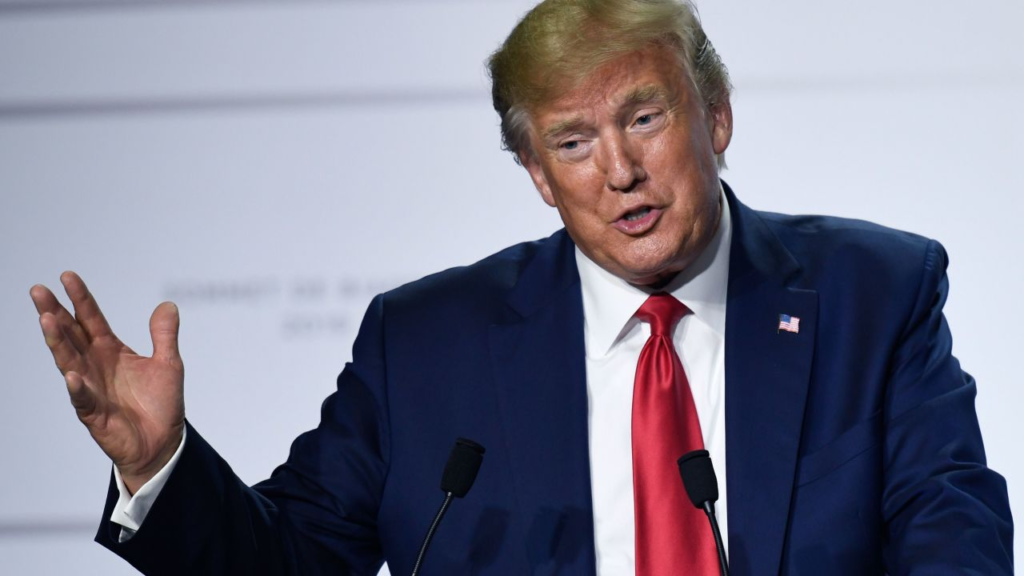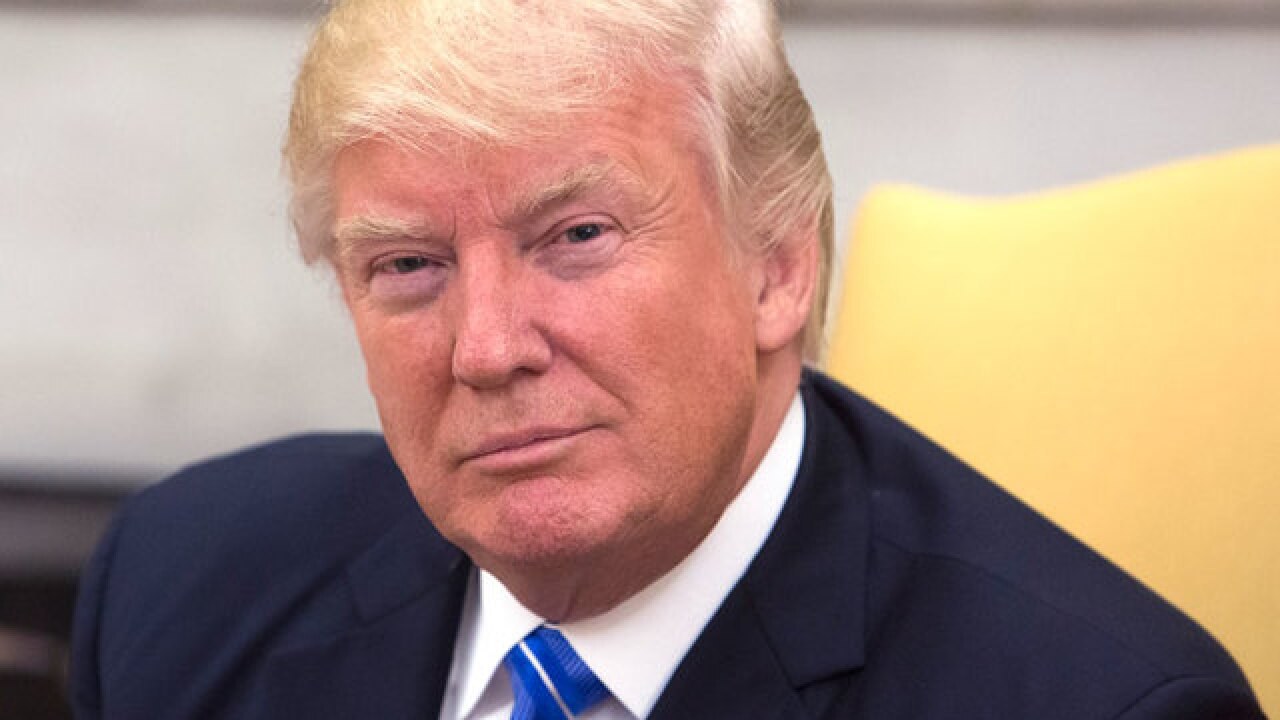Washington, DC, long considered the epicenter of government employment and stability, is facing a seismic shift as President Donald Trump and his billionaire ally, Elon Musk, push their Department of Government Efficiency (DOGE) agenda.
This campaign, designed to rein in government spending, has already led to the firing of thousands of federal employees and the reduction or cancellation of billions of dollars in government contracts.
As a result, the economic foundation of the nation’s capital is under serious threat, and the ripple effects could spread far beyond the federal workforce.
The city of Washington is bracing for the loss of up to 40,000 federal jobs—approximately 21% of its federal workforce. Local businesses are already feeling the strain, and civic leaders are preparing for a downturn in office and housing markets.
Tax revenues, which support essential city services, are expected to drop, leaving city officials with difficult decisions about where to make cuts.
“We’re in uncharted territory,” said Glen Lee, Chief Financial Officer for the District of Columbia. “The uncertainty in our forecast is unlike anything I’ve experienced in my 30+ years in this business.”
Local services like policing, education, and public health are expected to face severe budget reductions, further adding to the strain on city resources.
For federal workers affected by the cuts, the financial stress is immediate. Many are unsure about the future, with some already seeking new jobs or considering relocating to other areas.
Jenny Carlson Donnelly, an entomologist with the US Agency for International Development, is one such worker. After the Trump administration’s cuts to her agency, Donnelly is now unsure whether she and her family will be able to keep their home in Laurel, Maryland. “It’s stressful not knowing whether we can pay our mortgage or cover basic bills,” she said.
Though some workers have been temporarily reinstated due to legal battles, the overall outlook remains grim.
As a result, unemployment in Washington, DC has risen to 5.6%, the highest rate since January 2022, according to the Bureau of Labor Statistics. Meanwhile, the private sector is showing signs of strain as well, with many contractors in Maryland issuing WARN notices to their employees.
Washington’s Historical Stability Now in Question
Washington has long been a bastion of economic stability, with high salaries and a relatively low unemployment rate compared to other major US cities.
Washington has maintained an average unemployment rate of just 4.1% since 2000, trailing only Honolulu and Oklahoma City. However, these stable jobs were largely government-funded, and the cuts now sweeping through the federal workforce are undermining that stability.
The sudden loss of federal jobs has left many workers reeling. Shaw Vallier, who lost his job at a federal housing agency, described the shock of receiving an email about his termination.
“We’ve always had stability in government jobs due to union contracts and legal protections,” Vallier said. “Now it feels like none of that matters.”
Even those who have been reinstated after legal action are not out of the woods. Vallier, for instance, was rehired but placed on administrative leave without pay.
His uncertainty continues as he weighs whether to accept a job offer from a nonprofit or remain in the government’s deferred resignation program.
The Impact on Local Economy and Black Workers
Washington’s economy has always been centered on the federal government, with a lack of industrial diversity compared to other regions.
As a result, the cuts to the federal workforce are expected to hit especially hard. Economists have warned that Washington’s lack of industrial resilience could leave the city vulnerable to long-term economic setbacks.
The cuts will also disproportionately affect Black residents in Washington, DC, who make up a significant portion of the federal workforce.
Black workers are overrepresented in government jobs and are likely to bear the brunt of the job losses. As the city’s budget faces major shortfalls, programs aimed at assisting vulnerable communities, including human services, child care, and education, are expected to see significant cuts.
The Broader Economic Ripple Effects

The economic repercussions of DOGE’s cuts extend far beyond Washington itself. Suburban Maryland and Virginia, home to many federal workers and contractors, are also expected to experience financial hardship.
Local leaders are already bracing for the impact, with some even warning that the effects will be felt across industries.
Federal contractors, who account for millions of jobs nationwide, are also vulnerable to the DOGE cuts. According to a 2020 estimate by the Brookings Institution, there are roughly 5 million federal contractors, many of whom will likely face layoffs as part of the cuts.
These workers, along with those in grant-funded positions, could see their careers upended as a result of the ongoing changes.
Real Estate and Housing Market Fallout
The real estate market in Washington DC has remained relatively stable so far, but experts are forecasting potential trouble ahead. With fewer federal employees earning a paycheck, demand for housing—particularly in the luxury market—could shift dramatically.
Meanwhile, the city’s commercial real estate market, which relies heavily on government tenants, is facing a potential crisis as DOGE plans to reduce the federal government’s real estate holdings by up to 50%.
Local real estate agents are seeing a slight uptick in listings as workers are forced to sell their homes due to job losses. While high-end properties are still selling at premium prices, the broader market could face significant challenges as more people decide to leave Washington in search of work elsewhere.
Conclusion: A City at a Crossroads
Washington, DC is facing a unique economic crisis, with federal job cuts and a looming recession threatening the city’s long-standing stability.
With thousands of workers losing their jobs and many more uncertain about their future, the city’s future remains unclear. As civic leaders scramble to manage the fallout and workers navigate an increasingly unstable job market, the capital’s status as the nation’s economic and political center is at risk.
The DOGE cuts represent a dramatic shift in how Washington DC operates, and how the city adapts to these changes will shape its future.
Whether it emerges from this crisis stronger or more vulnerable will depend on the choices made in the coming months.
Disclaimer- Our team has thoroughly fact-checked this article to ensure its accuracy and maintain its credibility. We are committed to providing honest and reliable content for our readers.






